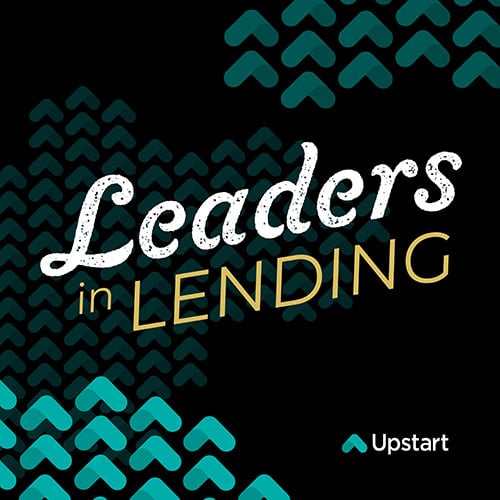Leaders in Lending | Ep. 66
Understanding the People Behind the Numbers in Fair Banking
With a focus on fair lending practices, financial literacy and compliance - Britt Faircloth, SVP, Fair Banking Officer at Valley Bank, offers her insights on how financial institutions can partner with their compliance teams to offer the right products for their communities.


GUEST SPEAKER
Britt Faircloth
As both a Certified Regulatory Compliance Manager and a Certified Anti-Money Laundering Specialist, Britt Faircloth serves as the Fair Banking Officer for Valley Bank where she partners with business units across the organization to manage fairness related risks. She has over 20 years of banking experience in both operational and compliance roles, with a deep knowledge base in Fair Lending, UDAAP, Redlining, CRA, and HMDA.

ABOUT
Valley Bank
Key Topics Covered
- Using data to ensure products fit the needs of communities
- How compliance and product can partner
- Fair-lending approaches applied to non-lending products
- Corporate responsibility and environmental, social and governance (ESG)
- The importance of financial education and literacy

“Where we have more diversity, we have more diversity of thought, and that brings greater ideas of how to serve our communities.”

“One of the things that we're seeing in the regulatory environment and across the industry is a focus on non-lending products and fairness.”

“[Institutions] must figure out the balance of technology plus the product offerings and what people actually need.”
EPISODE RECAP & SUMMARY
Data is critical to lending institutions, but financial institutions must remember that there are people behind the numbers.
With a focus on fair lending practices, financial literacy and compliance - Britt Faircloth, SVP, Fair Banking Officer at Valley Bank, offers her insights on how financial institutions can partner with their compliance teams to offer the right products for their communities.
More than a number
As a fair banking officer, Britt is involved in every product or service at Valley Bank — from conception and design to marketing, disclosure, delivery and complaints.
Britt describes the role as one designed to help make sure the products the bank puts into the world are meeting the needs of the community. She ensures that the products are fair and transparent, so that they always match consumer expectations.
Put simply: A fair banking officer is there to make sure the financial institution never forgets that their products are being used by real people, not just faceless data points.
For Britt, that mission goes beyond compliance and “the way it’s always been done” — it’s about doing what is right.
A way that she illustrates the distinction to other financial leaders is to have them always ask themselves one question: Would I be OK with my family using this product?
Pairing product & compliance
Focusing on people behind the numbers doesn’t mean jettisoning your data — far from it.
In fact, Britt points to the many ways analyzing that data can lead to better outcomes for the community, like being able to identify underserved populations, pinpoint what causes discrepancies between groups and reassess products that aren’t meeting community needs.
While a fair banking officer is a compliance role — which has historically been misconstrued as a roadblock, rather than a partner to product development — it’s easy to see the business value these insights provide.
When the community is better served by the products, they perform better, bolster the bank’s reputation and bring in more diverse customers and employees.
For Britt, fostering that internal diversity has been something she’s been prioritizing, since it’s one of the easiest ways to strengthen the bank. It brings fresh new ideas and demonstrates to various different communities that there is a place for them at Valley Bank.
These days, compliance is far from being a roadblock or a “last step” when developing a product; they’re a critical business partner.
Fair-lending approaches applied elsewhere
The vast amounts of data that most financial institutions have can be leveraged to provide better outcomes for financial products by identifying underserved groups and providing insights.
When it comes to lending, for example, the data can shed light on whether a group is disproportionately affected by certain credit factors or if there is a fault with the product.
As more financial institutions see the value such insights bring, fair-lending practices are increasingly being applied to non-financial products and services as well.
Now, financial institutions like Valley Bank are seeking to evaluate their promotions, marketing and even things like overdraft protection, or fees, which may disproportionately impact certain groups.
Britt admits that, unlike the previous lending example, the data isn’t always as clear-cut, but strides are being made in this area already. She’s excited for the opportunity to find new and creative ways to tackle the issue.
In the end, no matter how challenging it is, it’s well worth it.
Any financial institution is better off when they prioritize fairness and transparency across the whole business. Fair banking is the foundation of how banks can build trust, meet the needs of the community and, ultimately, strengthen the business.





